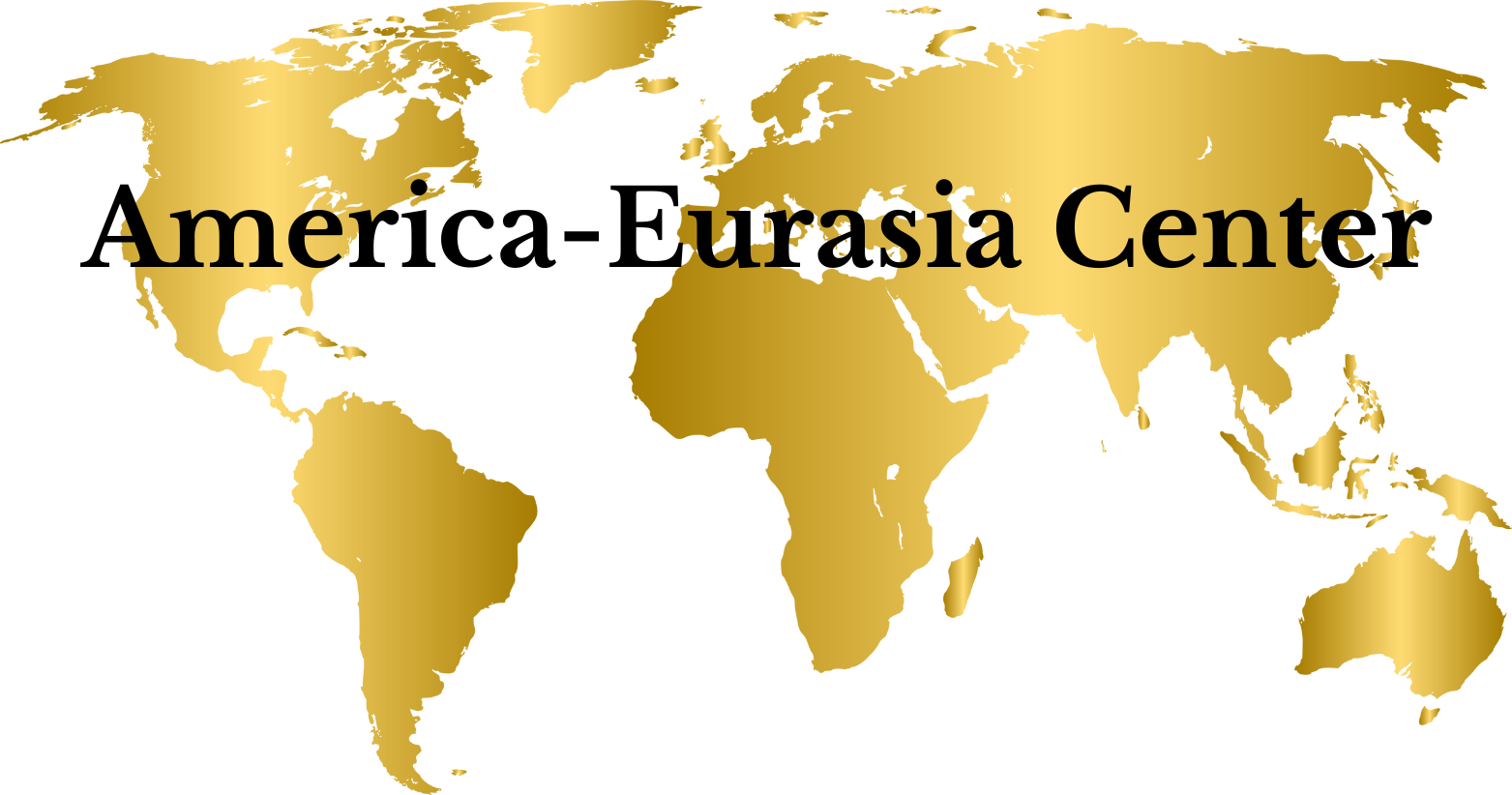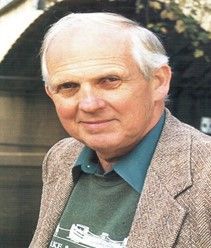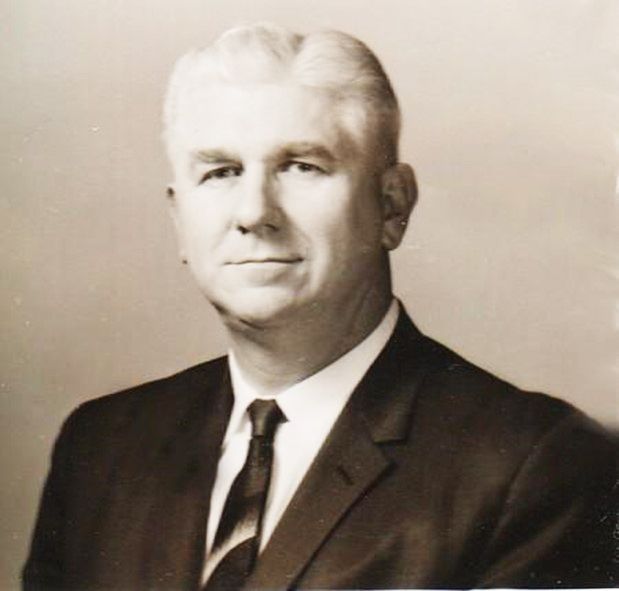The America-Eurasia Center's Hall of Heroes
In Memoriam: The Eurasia Center’s
Past Honorary Board of Ambassadors of Eurasia
Dr. Ray S. Cline
Dr. Ray S. Cline, received his Ph.D. from Harvard University. In the midst of World War II, Cline joined the Office of Strategic Services. He became Chief of Current Intelligence in 1944. He later traveled to China where he worked with other legendary OSS officers such as John K. Singlaub, Richard Helms, E. Howard Hunt, Paul Helliwell, Robert Emmett Johnson, and Lucien Conein. In 1946, he was assigned to the Operations Division of the General Staff of the United States Department of War, tasked with writing the history of the Operations Division for World War II. Cline joined the Central Intelligence Agency in 1949. He served in Great Britain under the supervision of Brigadier General E. C. Betts. From 1953 to 1957, he was the CIA desk officer charged with monitoring the Soviet Union and the People's Republic of China; in this capacity, he correctly predicted the Sino-Soviet split. In 1958 he became Chief of the CIA station in Taiwan. In 1962, Cline moved to Washington, D.C. as head of the CIA's Directorate of Intelligence and played a crucial role in the Cuban Missile Crisis when, under Cline's leadership, the Directorate of Intelligence concluded that the Soviet Union had shipped nuclear warheads to Cuba; Cline was among those who informed President John F. Kennedy of this development by showing him the microfilm.
In 1969, Cline returned to the United States when President Richard Nixon nominated him as Director of the Bureau of Intelligence and Research and he subsequently held this office from October 26, 1969 until November 24, 1973. In this capacity, he oversaw U.S. intelligence in the build-up to the Yom Kippur War. Cline left government service in 1973, becoming an executive director of the Center for Strategic and International Studies at Georgetown University. While at the Center for Strategic and International Studies, he became a prolific author on American intelligence and foreign policy. He also became an ardent defender of the CIA in testimony before the United States Congress and in the media. Cline was the founder and head of the U.S. Global Strategy Council. Dr. Cline was an avid supporter and Board Member of the Eurasia Center.
Dr. Constantine Mengas
Dr. Constantine Menges, was a National Security aide for Latin America during the Reagan administration who had a central role in planning the U.S. invasion of Grenada in 1983, and who focused on the continuing threat of communism in books and numerous articles. Dr. Menges had just completed the manuscript for a book titled "China, the Gathering Threat: The Strategic Challenge of China and Russia." He also was the author of a memoir, "Inside the National Security Council," several other books, and numerous articles.
Dr. Menges was born in Ankara, Turkey, the son of political refugees from Nazi Germany. The Menges family, fearing that Turkey would enter the war as an ally of the Axis powers, moved from place to place through war-torn Europe. The family arrived in the United States in 1943. Dr. Menges received a bachelor's degree in physics from Columbia College and a doctorate in political science from Columbia University. He taught political science at the University of Wisconsin before joining the Rand Corp.
From 1981 to 1983, he was a national intelligence officer for Latin American affairs at the Central Intelligence Agency under Director William Casey. From 1983 to 1986, he worked for the National Security Council as a special assistant to the president, specializing in Latin America. In "President Reagan: The Role of a Lifetime," author Lou Cannon described Dr. Menges as one of a cadre of National Security Council aides who believed, as did Casey, "that the West should be mobilized to fight Communists with their own methods."
Deeply involved in White House support for the Nicaraguan contras, Dr. Menges also argued that an American strategy for combating communism in Latin America should include suppression of right-wing death squads and promotion of land reform. "He believed that the United States should compete with the Soviets in sponsorship of 'national liberation movements' in Third World nations," Cannon wrote. Dr. Menges contended that the invasion of Grenada helped avert a possible Grenada nuclear deployment crisis and strengthened President Ronald Reagan's hand in deploying intermediate-range missiles in Europe in late 1983.
From 1990 to 2000, Dr. Menges was a professor at George Washington University, where he founded and directed the Program on Transitions to Democracy. His work on democratic transitions included the post-communist states, Iraq, Iran and the Americas.
Dr. Menges was enthusiastic about The Eurasia Center and its focus on Freedom vs Communism. He participated in Center panels and admired The Eurasia Center's research.
Dr. Adam Ulam
Adam Ulam was one of the world’s foremost authorities on Russia and the Soviet Union. He was a member of the Harvard faculty from 1947 until his retirement in 1992. Over the years, he trained thousands of undergraduate and graduate students, including many who went on to high-level posts in academia, government, business, and the media. Among his students were Robert Kennedy and Henry Kissinger. Ulam was affiliated with Harvard’s Russian Research Center (renamed the Davis Center for Russian Studies in 1997) for more than 50 years. He twice served as the Center’s director, from 1973 to 1976 and from 1980 to 1992. During his tenure, the Center became one of the leading institutions in the world for the study of the Soviet Union.
Adam Ulam was born on April 8, 1922, in what was then Lwów, Poland, now part of Ukraine. He emigrated to the United States in 1939, accompanied by his older brother, Stanislaw. The two brothers made it out of the country just two weeks before Germany attacked Poland. Dr. Ulam wrote 18 books, many of which remain classics in the field as they focused on Russia and the Soviet Union, which he maintained for the rest of his life.
His study
The Bolsheviks (1965) is still regarded as one of the definitive treatments of the Communist Party under the leadership of Vladimir Lenin. The book was hailed by reviewers as “an intellectual biography of the highest sort,” a “stunningly insightful look at this key period,” and a “masterful study of the Communists’ rise to power in Russia.” Ulam’s 760-page biography of Josef Stalin,
Stalin: The Man and His Era, met similar acclaim when it was published in 1973. Reviewers described it as a “mammoth and altogether splendid volume,” “an absorbing study of power won and terrifyingly applied,” a “superb biography of Stalin,” and a book that is “morally as well as historically definitive.”
Ulam’s magisterial survey of Soviet foreign policy,
Expansion and Coexistence, published in 1967, is often regarded as the most influential book on the subject ever to appear. Ulam wrote a sequel to it,
Dangerous Relations, in the early 1980s. The two books together cover Soviet foreign policy to the rise of Mikhail Gorbachev. Ulam never published a book length study of Gorbachev’s foreign policy, but he did cover the subject in his final book,
The Communists (1992).
Ulam won many awards for his research, including a Guggenheim Fellowship in 1956, Rockefeller Fellowships in 1957 and 1960, and a lifetime distinguished achievement award from the American Association for the Advancement of Slavic Studies in 1987.
Dr. Ulam was impressed with the Eurasia Center and its Eurasia Report and wished to be an Honorary Board Member of the Eurasia Center and support the Center in whichever way he could.
Dr. Carl Linden
Dr. Carl A. Linden, was a professor emeritus at George Washington University’s Institute for European, Russian and Eurasian Studies. Dr. Linden taught full-time at GWU from 1971 to 2001, followed by three years teaching an honors course each semester. Carl Arne Linden was born in Greenwich, Conn., and raised in Rye, N.Y. He was a 1951 international affairs graduate of Syracuse University, where he was elected to the Phi Beta Kappa honor society. He received a master’s degree in Russian studies from Harvard University in 1956. He received a doctorate in political science and international affairs from George Washington University in 1965.
He did intelligence work with the Air Force during the Korean War. He was a political analyst for the CIA-affiliated Foreign Broadcast Information Service from 1956 to 1965, followed by five years of teaching courses in Western thought at St. John’s College in Annapolis. Dr. Linden, a Bethesda resident, was a board member and past president of the C&O Canal Association and edited its quarterly newsletter. He was a leader in the restoration and preservation of the canal’s Monocacy Aqueduct.
Dr. Linden was an early supporter of the Eurasia Center’s lecture series at George Washington University and participated on a number of panels as a moderator and specialist regarding the great changes in Eastern Europe and the Soviet Union/Russia. Dr. Linden was excited to become a Honorary Board Member of The Eurasia Center.
Amb. Julian Niemczyk
Ambassador Julian Martin Niemczyk,(August 26, 1920 - September 16, 2009) was a United States diplomat. Born in Fort Sill, Oklahoma, Niemczyk served in the U.S. Army and Air Force, rising to the rank of colonel. He studied at first at the University of Oklahoma before service in World War II and eventually graduated from the University of the Philippines in 1955. In the 1970s and 80s he was active in the Republican National Committee. Nominated by President Ronald Reagan, he served as the United States Ambassador to Czechoslovakia from 1986 to 1989. He was President of People-to-People International.
Ambassador Niemczyk was extremely proud of the efforts that The Eurasia Center had made in participating in the democratic revolutions of Eastern Europe and supporting scholarly research of the nations of Eastern Europe to democracy.
Amb. Raymond Garthoff
Ambassador Raymond Garthoff, received his Ph.D. from Yale University. From 1950 to 1957, he was a Soviet analyst for RAND Corporation. From 1957 to 1961, he was a CIA Office of National Estimates (ONE) analyst. In the early 1960s, he was a special assistant in the State Department. In the 1970s, he was a senior Foreign Service inspector. He worked in the Bureau of Political-Military Affairs and for the Arms Control Disarmament Agency. He was a NATO Negotiator in Brussels working on the SALT Talks and then a negotiator for The Mutually Balance Force Reduction negations (MBFR). He served as US Ambassador to Bulgaria during the Carter Administration. From 1980 to 1994, he was a senior fellow at the Brookings Institution. He is the author of numerous scholarly papers, books, and has been featured in PBS documentaries. He is well known for his disagreement with Team B's and Richard Pipes's 1976 characterization of Soviet nuclear doctrine.
Ambassador Garthoff was especially pleased with the direction of the Eurasia Center and its analysis. As an Honorary Board Member, he also participated in a number of panels on international security issues.






